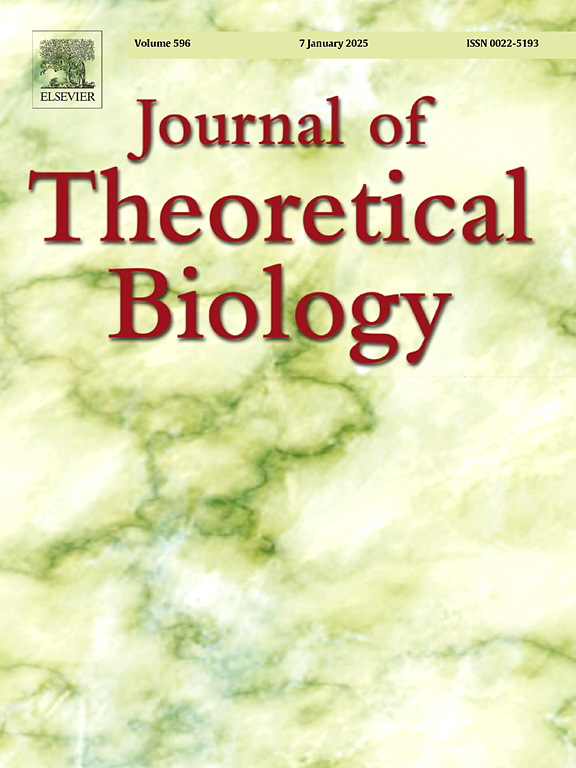Time-delay enhanced SIR model for COVID-19 waves in Mexico: Parameter estimation using evolutionary algorithms
IF 2
4区 数学
Q2 BIOLOGY
引用次数: 0
Abstract
In this work, we analyze the progression of COVID-19 across six distinct epidemic waves in Mexico using a time-delay SIR model, focusing specifically on whether the inclusion of incubation and recovery delays into the classical SIR framework enhances the model’s ability to capture the complex dynamics observed in epidemic data. To achieve robust and reliable estimation of both model parameters and time delays despite the inherent uncertainties present in pandemic data, we employ Particle Swarm Optimization (PSO) and Genetic Algorithms (GA). The performance of these optimization methods is assessed by examining their effectiveness in accurately reconstructing parameters across varying data with noise and uncertainties. Our findings indicate that both PSO and GA yield robust parameter and time-delay estimations even under scenarios where data have uncertainties, highlighting the critical role that time delays play in realistically modeling epidemic dynamics. The obtained results provide valuable insights into COVID-19 transmission patterns in Mexico and demonstrate the practical advantages of evolutionary algorithms for epidemic model calibration.

墨西哥COVID-19波的时滞增强SIR模型:基于进化算法的参数估计
在这项工作中,我们使用时滞SIR模型分析了COVID-19在墨西哥六个不同流行波中的进展,特别关注将潜伏期和恢复延迟纳入经典SIR框架是否增强了模型捕捉流行数据中观察到的复杂动态的能力。尽管大流行数据中存在固有的不确定性,但为了实现对模型参数和时间延迟的鲁棒可靠估计,我们采用了粒子群优化(PSO)和遗传算法(GA)。这些优化方法的性能是通过检查它们在具有噪声和不确定性的不同数据中准确重建参数的有效性来评估的。我们的研究结果表明,即使在数据具有不确定性的情况下,粒子群算法和遗传算法也能产生鲁棒的参数和时延估计,突出了时延在实际建模流行病动力学中发挥的关键作用。获得的结果为了解COVID-19在墨西哥的传播模式提供了有价值的见解,并证明了进化算法在流行病模型校准方面的实际优势。
本文章由计算机程序翻译,如有差异,请以英文原文为准。
求助全文
约1分钟内获得全文
求助全文
来源期刊
CiteScore
4.20
自引率
5.00%
发文量
218
审稿时长
51 days
期刊介绍:
The Journal of Theoretical Biology is the leading forum for theoretical perspectives that give insight into biological processes. It covers a very wide range of topics and is of interest to biologists in many areas of research, including:
• Brain and Neuroscience
• Cancer Growth and Treatment
• Cell Biology
• Developmental Biology
• Ecology
• Evolution
• Immunology,
• Infectious and non-infectious Diseases,
• Mathematical, Computational, Biophysical and Statistical Modeling
• Microbiology, Molecular Biology, and Biochemistry
• Networks and Complex Systems
• Physiology
• Pharmacodynamics
• Animal Behavior and Game Theory
Acceptable papers are those that bear significant importance on the biology per se being presented, and not on the mathematical analysis. Papers that include some data or experimental material bearing on theory will be considered, including those that contain comparative study, statistical data analysis, mathematical proof, computer simulations, experiments, field observations, or even philosophical arguments, which are all methods to support or reject theoretical ideas. However, there should be a concerted effort to make papers intelligible to biologists in the chosen field.

 求助内容:
求助内容: 应助结果提醒方式:
应助结果提醒方式:


